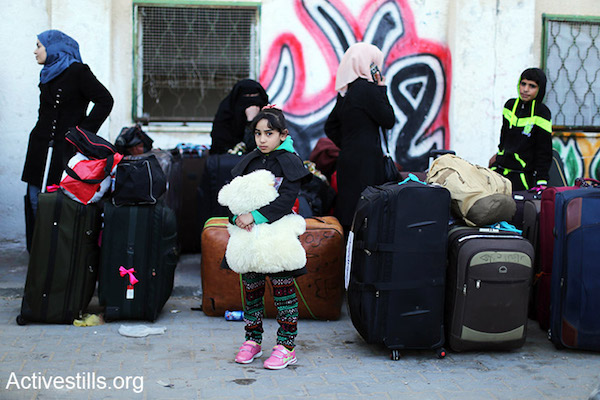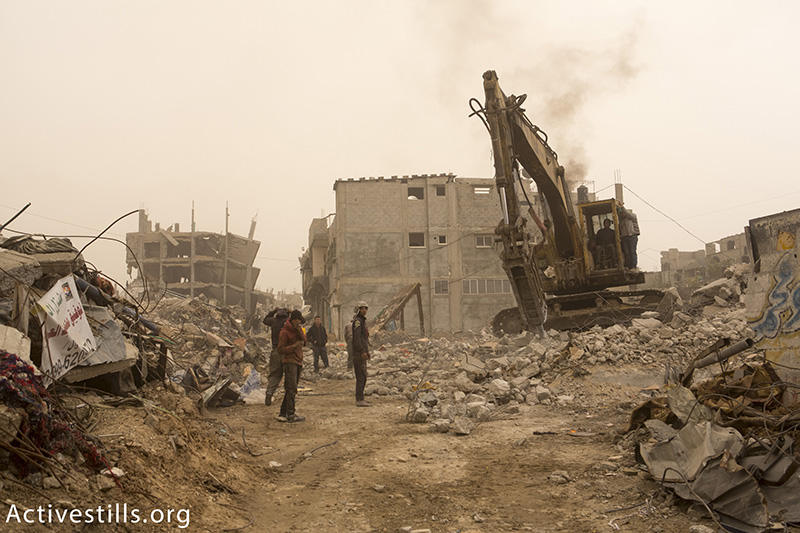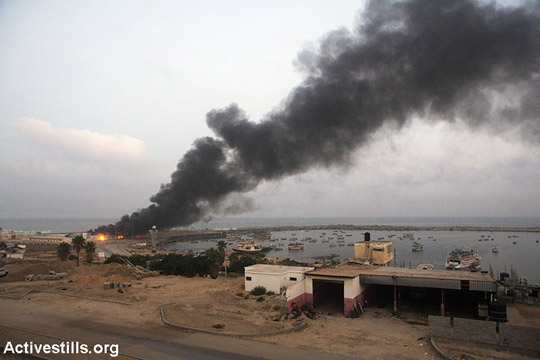If Liberman truly wants to keep Israelis safe, he will to do whatever he can to ensure that Gaza’s residents can lead normal lives.
By Noam Rabinovich

What will Avigdor Liberman’s first week as defense minister look like?
One might imagine he would begin by introducing himself to the staff, getting acquainted with the office, making some coffee (or tea, to each their own) and going over some emails. Then, one might assume and hope, he will get down to the business of security and managing the occupation. After all, the defense minister’s job description includes ensuring the well-being of the Palestinian population in the occupied territories.
No issue is more urgent than Gaza, which – as the United Nations’ Mideast peace envoy, Nickolay Mladenov, noted last week – remains “desperate and highly volatile.”
Liberman certainly has a few ideas of his own. This past April he threatened to assassinate Hamas politburo chief Ismail Haniyeh, an act that would undoubtedly have brought about another round of hostilities. During 2014’s Operation Protective Edge he advocated re-occupying the entire Gaza Strip. When he was deputy prime minister and strategic affairs minister in May 2007, Liberman presented his plan to isolate Gaza from the West Bank, a plan he doubled down on in August 2014 as the country’s foreign minister.
It is sometimes said that there are no bad ideas when brainstorming, but let’s dispense with that fiction here and now – these are bad ideas.

Another option – dare I say it, the better option – would be to defer to the expertise of the senior professional ranks of the military and security services. One hopes that a new minister – any minister — would start by consulting the people who are in charge of Israel’s security and inquire as to their opinions on the pressing issues at hand. Call it a professional courtesy.
Liberman might choose to begin by making a call to the IDF chief of staff. If he does so, Gadi Eisenkot will likely repeat the statements he made to to the Knesset’s Foreign Affairs and Defense Committee in June 2015, when he said (Hebrew) that the military is trying to improve Gaza’s economy.
Or perhaps Eisenkot will tell Liberman the same thing he reportedly told Alex Fishman of Yedioth Aharonot: “The [chief of staff’s policy] relies on two principles: trying to hold back Hamas’ rising strength and, at the same time, doing everything to bring hope to the Gaza Strip, so they have something to lose. Eizenkot supports helping Gaza’s reconstruction. For instance, he does not rule out the idea of a remote port that would serve the people of Gaza, in Cyprus for instance. On this point, he agrees with the Coordinator of Government Activities in the Territories, Maj. Gen. Yoav Mordechai – a member of his closest circle. Both believe that the more hope there is, the more a confrontation can be kept at bay.”

Liberman could also turn to his predecessor, former Defense Minister Moshe Ya’alon, for his take on Gaza. Ya’alon will likely refer to his statements of September 2015, when he said (Hebrew) Israel is attempting to revive the economy by allowing the entrance of construction materials and other goods, not to mention his comments in October 2014, when he argued (Hebrew) that Gaza’s reconstruction is in Israel’s interest, as it will open the door to some hope, and allow people in Gaza to live in dignity and make a living.
In fact, over the past year and a half, numerous officials have drawn a connection between Gaza’s reconstruction and regional stability. Soon after the end of Operation Protective Edge, the rhetoric of senior Israeli officials about Gaza’s residents and their needs changed markedly. Former Chief of Staff Benny Gantz, IDF chief intelligence officer Eli Ben-Meir, Coordinator of Government Activities in the Territories (COGAT) Maj. Gen. Yoav Mordechai (Hebrew) are among those who recognized that Gaza’s reconstruction is in Israel’s interest, and made public statements stressing that giving Gaza residents a horizon would contribute to regional stability and may even prevent another conflict in the near future.
Israeli politicians, from MK Ofer Shelah to Education Minister Naftali Bennett, have also made statements to that effect. Even Liberman’s new boss, Prime Minister Benjamin Netanyahu, boasted (Hebrew) of Israel’s efforts to reconstruct Gaza as a means of preventing another violent escalation.

There is an almost complete consensus among Israeli officials that can be summed up in one sentence: the continued chokehold on Gaza’s economy is dangerous for Israel. In other words, not only is there no dichotomy between human rights and Israel’s security interests (Hebrew), in fact, upholding the rights of Gaza residents is essential for security.
Liberman has been called many things by many people, but one self-declared element of his personality seems to rise above the babble: he calls himself a man of action. Great, because one thing that’s been missing are actions to match the Israeli establishment’s rhetoric. If Liberman is truly committed to enhancing the security of Israelis and to contributing to regional stability, he would be well advised to heed his advisors and his colleagues and act to help Gaza residents recover and lead normal lives.
Noam Rabinovich is Director of International Relations at Gisha, an NGO that promotes freedom of movement for Palestinians into and out of Gaza. This article represents her own views.

